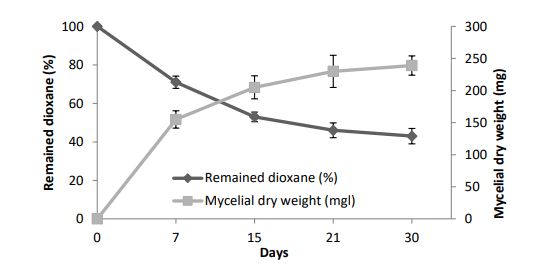Potential Co-Culture of Fungi in Degradation of 1,4-Dioxane
Keywords:
1,4-Dioxane, biodegradation, Trametes versicolor U97, Pestalotiopsis sp. NG007, co-cultureAbstract
Biodegradation using fungi become a concern for a decade to remove pollutants, it is due to cost-effectiveness, inherent eco-friendly properties, and potential for complete decomposition of harmful compounds. A single strain of fungi was studied to degrade various pollutants has been commonly investigated. However, the degradation of 1,4-Dioxane by co-culture white-rot fungi has not been investigated. Dioxane contamination is known as public health due to its adverse health effect, including carcinogens and persistence in the natural water system. Therefore, this study has aimed to investigate the degradation of 1,4-Dioxane and compared it with the addition of inducer. Co-culture of fungi (Trametes versicolor F200 and Pestalotiopsis sp. NG007) can improve degradation of 1,4-Dioxane after the addition of inducers. It degraded dioxane 71% at 50 ppm and 47% at 500 ppm for 60 days. MnSO4 as an inducer was capable to enhance the activity of enzymes and degradation rate.










